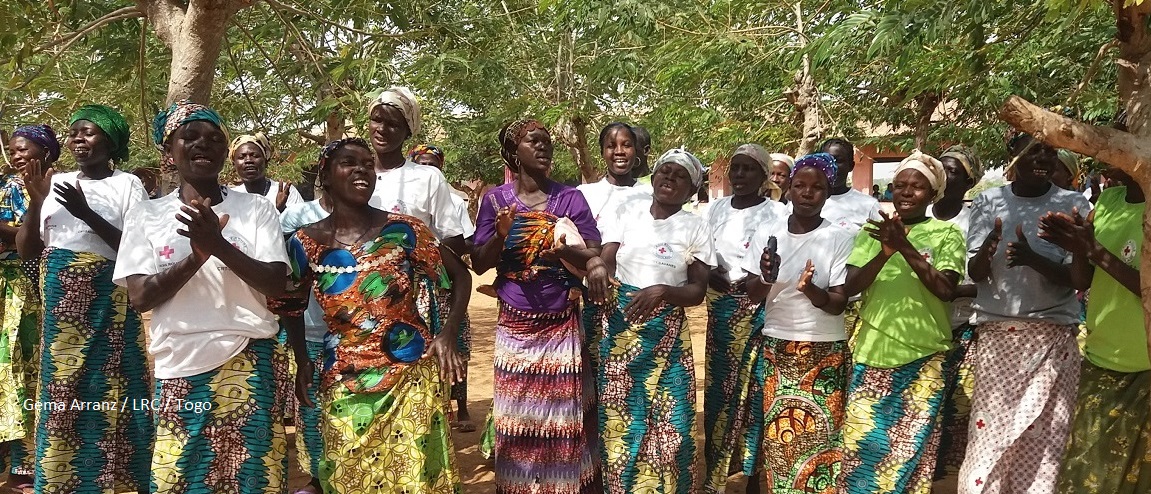Background - Livelihoods Centre
Background

Background
-
Context and linkages with strategic initiatives
Disasters, shocks, protracted crisis and conflicts often take away or threaten the livelihoods and future of those affected. In addition to the serious loss of life, assets and natural resources, for a large number of households short-term economic and social vulnerability is increased, and their ability to recover and cope with future shocks is seriously eroded. When livelihoods are sustainable, vulnerable people can better cope with and recover from stresses and shocks, maintain or enhance their capabilities and assets, and provide benefits to other livelihoods locally, and more widely, without damaging the natural resource base .
Livelihoods approaches were traditionally considered in longer-term development programming. However, since 2007, the International Federation of the Red Cross and Red Crescent Societies (IFRC) recognized that early food security and livelihoods programming has increasingly been seen as a key intervention for addressing humanitarian needs and to support the recovery process of individuals, households and communities. The first strategic objective of the Strategy 2020 aimed at protecting livelihoods . The Strategy 2030 refers directly to livelihoods as a key area under Goal 2, while it also includes livelihoods and food needs as challenges we will face in the next decade. Even if not directly mentioned, food security and livelihoods are also completely linked with all the goals and challenges identified.
In the Disaster Risk Management Policy, the fourth commitment under its approach is “Save lives and livelihoods by responding to disasters in an effective, coherent and timely manner with consideration for long-term effects of humanitarian response”. This includes a clear people centred approach focusing on a locally led response, utilizing the capacity of the National Society in the affected country and leveraging the collective capacity of the IFRC and Movement network.
The draft IFRC Recovery Framework highlights the importance of NSs better supporting community recovery within the scope of their humanitarian operations, and ensuring operations contribute to longer-term resilience objectives. The restoration of livelihoods affected by crisis and strengthening the household economy of affected populations are usually key aspects of recovery which need to be considered.
We are already living the challenges foreseen by the Strategy 2030 for this decade. The strong effects of climate change, economic crisis, and concomitant disasters are already here and urge us to take action, including climate smart interventions. The context we live in now, when all the countries in the world are struggling with the socio- economic impact of the effects of COVID-19 mitigation measures to protect public health, come to reinforce the need of an integrated approach and strategy where livelihoods provision for basic needs, support livelihoods protection and recovery is at the core of any response, if we follow a people centred approach and aim at leaving no one behind. A new context brings also opportunities, such us establishing linkages with Social protection systems, and promote livelihoods protection interventions as essential part of Early Actions linked with Forecast based Financing mechanisms.
The newly adopted Strategy 2030 brings the opportunity to define the strategic direction the IFRC Secretariat and its membership wants to adopt for the future.
-
Movement FSL responses and reasoning behind consultation process
In the past years, we are seeing an increasing number of partners of the RCRCM involved in different food security and livelihoods interventions, whether through emergencies or longer-term development programming. Livelihoods support is also seen more and more in emergency appeals during the emergency phase, including large-scale disasters such as the Syria crisis (since 2015), Nepal EQ (2015- 2018), Cyclone Idai in Mozambique (2019) and the current response to the food security crisis in Africa; not to mention FSL presence in many more major disasters like Tsunami 2004 or Haiti 2010 and the current COVID 19 response.
We are also now seeing an increased need and priority for FSL interventions. Many NSs have long-term experience in implementing these, however with the changing context and increased need and priority for FSL interventions, we are also seeing challenges in terms of supporting NSs to carry them out.
In this context, the IFRC Secretariat, British Red Cross and the IFRC Livelihoods Centre have made the commitment to promote this initiative and take to this wider consultation process to discuss and agree on a way forward with a proposed FSL and Basic Needs Approach and in the development of a shared FSL Strategy.


